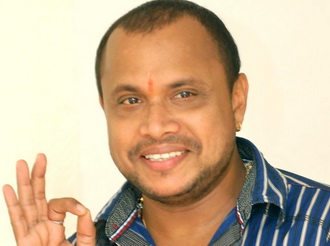Mangaluru, Sep 26: Naveen D Padil, the comedy king of Tulu theatre and film industry is all set enter the fourth season of the Kannada reality television series Bigg Boss Kannada.
 Known widely in the circles of Tulu theatre from his acting performances as a "Master of Comedy and Tragedy", 47-year-old Mr Padil is called "Kusalda Arase" (The King of Happiness).
Known widely in the circles of Tulu theatre from his acting performances as a "Master of Comedy and Tragedy", 47-year-old Mr Padil is called "Kusalda Arase" (The King of Happiness).
Mr Padil along with Devadas Kapikad and Aravind Bolar formed a famous trio that appeared in Tulu comical stage plays during the 1990s and early 2000s.
In the late-2000s, alongside his theatre career, Mr Padil began his film career, appearing in Tulu films primarily. He has appeared in popular Tulu films such as Oriyardori Asal (2011), Telikeda Bolli (2012) and Chaali Polilu (2014).
He also appeared in a supporting role in the 2011 Kannada film, Jarasandha. In 2014, in recognition of his contribution to theatre, he was awarded at the 24th annual Sandesha Awards in the Arts segment.
The other probable contestants who are likely to participate in the Bigg Boss show this time are Chikkanna, Malashree, Sheetal Shetty, Vijay Suriya, Naveen Krishna, Shalini, Chandan Shetty, Kirik Keerthy and many more.
However, the contestants of the famous reality show Bigg Boss Kannada season 4 will be officially revealed on October 9 at 6pm on Colors Kannada. The show will be hosted by Kiccha Sudeep.
There will be grand opening ceremony on October 9, where contestants will be introduced to the viewers. In this season the show will be aired from 9pm to 10 every day starting from October 10.
There will be elimination during weekends. Contestants have to stay in at specially made house which has been temporarily constructed at Innovative Film city.











Comments
Waiting for this....Padilere soooper
Add new comment